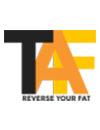According to a report published by WHO worldwide obesity has nearly tripled since 1975.In 2016, more than 1.9 billion adults, were overweight, Of these over 650 million were obese.
Which diet do I follow to lose weight? - is one of the most highly searched concerns on the internet today.Since we live in a jungle of information on diets and keep wandering which path is safe to follow.

Let’s decode the myths and beliefs behind a few popular diets.
Principally, some of these diets focus on the reduction of appetite, while others restrict calories, carbs, or fat.
The Paleo Diet
This diet advocates that you should eat the same foods that our hunter-gatherer ancestors ate before agriculture developed.It claims that most modern diseases are linked to the consumption of grains, dairy, and processed foods.
How it works: The Paleo diet includes whole foods, lean protein, vegetables, fruits, nuts and seeds and discourages processed foods, sugar, dairy, and grains. Paleo dieters automatically restrict their consumption of carbs and consume more protein thus having 300–900 fewer calories per day.
Benefits: Weight loss and reduced waist size. The diet is effective at reducing risk factors for heart disease such as cholesterol, blood sugar, blood triglycerides and blood pressure.
The flipside: The Paleo diet eliminates whole grains, legumes, and dairy which are healthy and nutritious.
The Vegan Diet
The philosophy behind the Vegan diet is to restrict all animal products for ethical, environmental, and health reasons.How it works: This diet is a plant-based diet that excludes all kinds of meats. In addition to meat and fish, it eliminates dairy, eggs, and all animal-derived products such as honey. A Vegan diet seems to be remarkably effective in assisting people to lose weight, often without counting calories. This is due to its low fat-high fiber content which gives a full and satiated feeling for a longer period of time. The simple mechanics behind weight loss on Vegan diets are associated with reduced calorie intake caused by a higher dietary fiber intake.
Benefits: Vegan diets are consistently linked to lower body weight and body mass index (BMI) compared to other diets. Plant-based diets are linked to a reduced risk of heart disease and type 2 diabetes. Limiting processed meat may also help in the reduction of Alzheimer's disease and cancer.
The Flipside: As a Vegan diet is devoid of animal foods, it tends to give rise to deficiencies of Vitamin B12, Vitamin D, iodine, iron, calcium, zinc, and omega-3 fatty acids.
The Keto Diet
The most talked-about diet these days is the Ketogenic diet which is a low-carb, high-fat diet.How it works: The basic benchmark of this diet is to increase fat intake to the maximum, for fuel, instead of consuming carbs as the main source of energy. When carb intake is less, fatty acids are moved into the bloodstream and transported to the liver, where some of them are transformed into ketones. The body then uses fatty acids and ketones in the absence of carbs as its primary energy source and remains in the state of Ketosis.
Benefits: Interestingly, the weight-loss advantage is a proven benefit of the Keto diet. Numerous studies have shown that Ketogenic diets lead to more than twice the weight loss than a low-fat, calorie-restricted diet.
Ketogenic diets can cause enormous reductions in blood sugar and insulin levels. This diet seems to be extremely effective at reducing dangerous belly fat lodged around organs.
Other benefits: The Keto diet has a tendency to reduce appetite and feel less hunger, leading to an automatic reduction in calorie intake.
The Flipside: It is not suitable for every individual. Some feel great on them whilst others feel miserable. Some people may experience an increase in “bad” LDL cholesterol. However, for the majority, it’s considered safe.
The Intermittent Fasting
Cycling your body between periods of fasting and eating rather than restricting the foods you eat, has great benefits. It controls when you eat them. Thus, it can be viewed as more of an eating pattern than a diet plan.The various ways of practicing intermittent fasting are:
- The 16/8 method: Involves skipping breakfast and restricting your daily eating period to eight hours, subsequently fasting for the remaining 16 hours of the day.
- The eat-stop-eat method: Involves 24-hour fasts once or twice per week on non-consecutive days.
It can make you eat fewer calories overall, as long as you don't overcompensate by excessive eating during the eating periods.
Benefits: Intermittent fasting is proven to be successful for weight loss. It has been shown to cause weight loss of 3–8% over a period of 3–24 weeks, which is a lot, compared to most weight-loss diets.
In addition to causing less muscle loss than standard calorie restriction, it may increase your metabolic rate by 3.6–14% in a short period.
Other benefits: Intermittent fasting may reduce markers of inflammation, cholesterol levels, blood triglycerides, and blood sugar levels.
The flipside: Although intermittent fasting is considered safe for well-nourished and healthy people, it may not suit everyone.
Diabetic patients who are sensitive to sudden drops in blood sugar levels should avoid fasting. Caution should be exercised by lactating moms, teenagers, and children.
The Dukan Diet
This is a high-protein, low-carb weight loss diet bifurcated into four phases — two weight loss phases and two maintenance phases. The Dukan diet limits both fat and carbs, a strategy not based on science.How it works: The weight loss phases are primarily based on eating unlimited high-protein foods and a mandatory oat bran intake.
The other phases involve adding non-starchy vegetables followed by some carbs and fat. Gradually pure protein days are reduced to maintain the new weight achieved.
Benefits: Studies show that high-protein, low-carb diets may have major weight loss benefits. Other benefits include a decrease in the hunger hormone ghrelin and a notable increase in several fullness hormones.
The flipside: The fast weight loss achieved by rigorous calorie restriction tends to cause significant muscle loss. The loss of muscle mass and severe calorie restriction may also cause the body to conserve energy, making it quite easy to regain weight after losing it.
The HCG Diet:
This is termed as an ‘extreme diet’ intended to cause quick weight loss.HCG (human chorionic gonadotropin) is a hormone present at high levels during early pregnancy. It indicates pregnancy and maintains the production of hormones that are important for fetal development.
How it works:
This diet is split into three clear phases. In the first phase, HCG supplements are administered.
In the second phase, an ultra-low-calorie diet is followed consisting of only 500 calories per day alongside HCG supplements in the form of injections or sprays. The weight loss phase is prescribed for 3–6 weeks at a time.
In the third phase, HCG is terminated and food intake is gradually increased.
The HCG diet does cause weight loss, but multiple studies conclude that weight loss is due to the ultra-low-calorie diet alone and not the HCG hormone.
Furthermore, HCG was not found to reduce hunger.
The flipside:
Like most other ultra-low-calorie diets, the HCG diet may cause muscle loss, which results in a reduced ability to burn calories.
In addition, most HCG products on the market are deceiving and don't contain any HCG.
Moreover, the downside of this diet is that it has many side effects, including headaches, fatigue, and depression.
The US FDA disapproves of this diet and cautions against its use.
The Perfect Diet
There is no ‘Perfect Diet’! Different diets work for different people. The best diet for you is the one that resonates with your body needs. One has to assess, which diet is most suitable as their long term eating pattern. But before you jump into any of these diets in the hope of losing extra weight, Be realistic !! Diets and healthy lifestyle changes don’t happen overnight, it takes time and dedicated commitment to manifest real results.My Secret
I’m going to share a little secret with you. Every single diet discussed above may work for you or maybe not. But they all focus on limiting sugar, preservatives and processed foods replacing these with more natural, unprocessed, nutrient-dense options. Good food Good nutrition is the recipe for success for just about everyone. The key lies in moderation and balance. Diets are the new Fads like Fashion…Not every style is for you.The good news is that you can get your own style customized and ensure sustainability.

